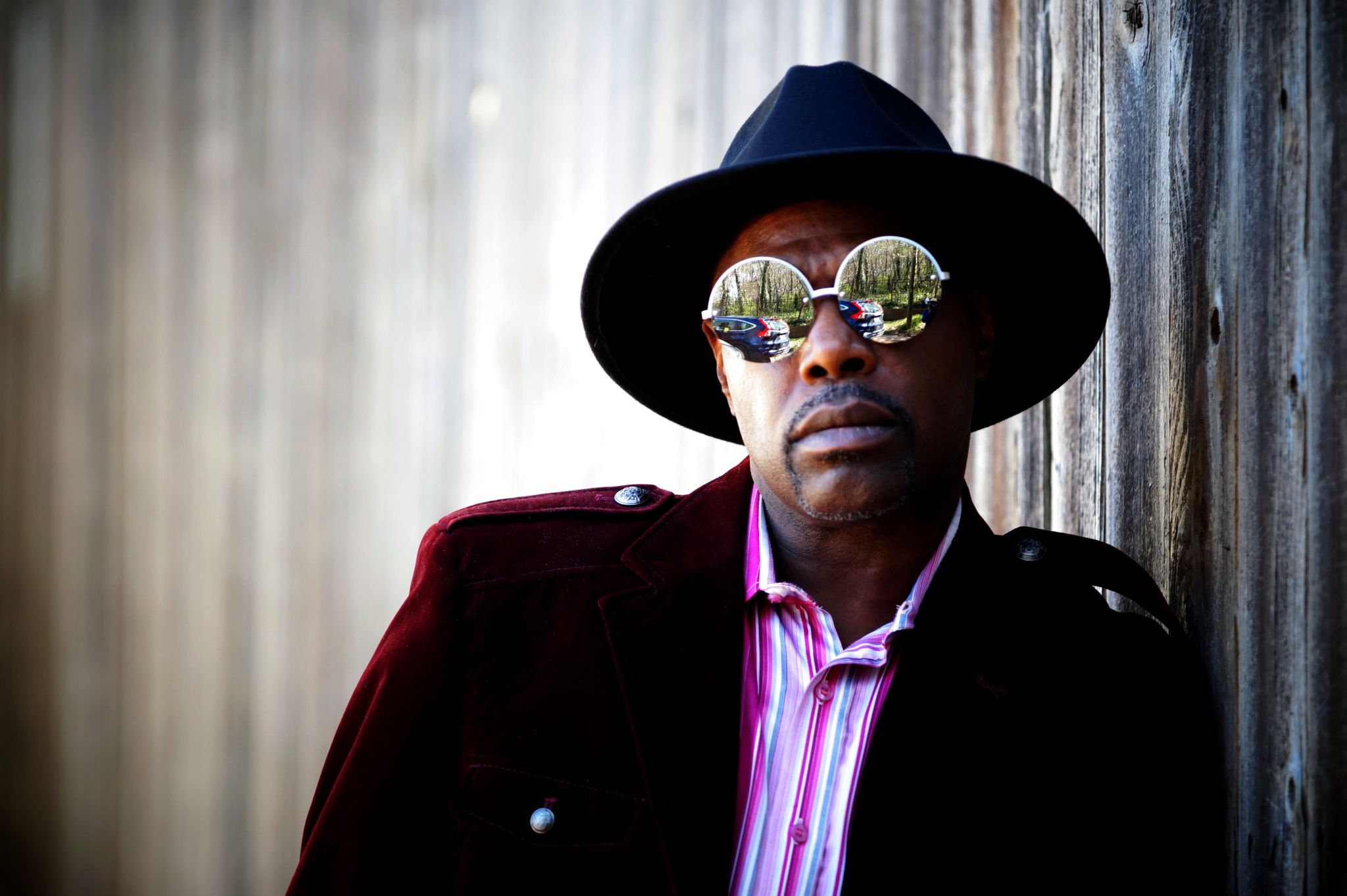“On the Field”
Guest Writer: Bishop Hartsel Clifton Shirley
HUT ONE! HUT TWO! HUT THREE! HIKE! Whispers. Secrets. Conceal and hide! So goes life if you’re gay in football. And enthusiasts of one of America’s favorite pastimes rejecting homophobia appears to be as complicated and difficult as it is for bigots to reject racism.
Roy Franklin Simmons was once a professional footballer, playing in the National Football League (NFL) for the New York Giants and the Washington Football Team (formerly the Washington Redskins). But of particular note is that the athlete was the first Black openly gay player in the league.
Simmons was born on November 8, 1956, in Savannah, Georgia. Growing up in poverty, he had five siblings–each having different fathers. As a child, he was sexually assaulted by a male family friend.
Simmons played football at Savannah’s Alfred E. Beach High School and upon graduating in 1974, was recruited to play basketball at Georgia Tech University. In the years playing with the Georgia Tech Yellow Jackets, he was nicknamed “Sugarbear” because of his friendly personality. It was during his time at Georgia Tech that the collegian established a routine of getting drunk and going to bathhouses close to the university. His friends knew nothing of Simmons being gay.
After graduating from Georgia Tech, Simmons became an eighth-round draft pick of the New York Giants in 1979. After signing with the team, he moved his three younger brothers to New Jersey to live with him. Soon after, his mother and other family members moved in.
Simmons was steady on the offensive line in his rookie season. By 1980, he started all 16 games as a left guard. The footballer played for two seasons with the Giants until 1981 when he lost his starting position as a guard, and decided to leave the team. Unfortunately, no other team picked him up; he was forced to find work as a baggage handler at John F. Kennedy International Airport in New York City.
The year 1983 brought Simmons back to the NFL and he signed with the Washington Football Team. In the 1983 season, the franchise made it to Super Bowl 18 but lost to the Los Angeles Raiders. He played one more season with the Jacksonville Bulls of the U.S. Football League before retiring from the game in 1985.

Simmons’s personal life then became controversial with rumors of drug abuse, as well as being gay. Word got around about him allegedly having had sex with an anonymous teammate while playing for the Giants. It was also rumored that he snorted cocaine with family and friends whom he had invited to Super Bowl 18.
Simmons’s downward spiral continued: according to his friend and autobiography collaborator, James Hester, the former athlete sold sex for drugs in the peep shows of San Francisco sex establishments. However, he tried several times at rehabilitation. And, he fathered a baby girl, the result of one of his several attempts at relationships with women.
In 1989, one of Simmons’s cousins shared with a girlfriend of his that he’d had male lovers. Ashamed, he ended up moving to San Francisco, disconnecting from his family. Next, he got caught up in the Golden City’s drug culture and was even wounded in a knife fight. Sadly, at one point, he was homeless.
In 1990, Simmons openly acknowledged being a part of the LGBTQ community. On the Phil Donahue Show in 1992, he revealed his true sexual orientation–making him the first Black NFL player and the second NFL player to come out as gay. (In 1975, David Kopay revealed that he was gay.)
In 1997, Simmons disclosed that he was HIV positive (the first NFL player to ever come out as poz); subsequently, he opened up about being raped as a child. Next, he became a born-again Christian, sharing his new faith on Christian TV.
Simmons, in 2006, appeared before the House Judiciary Committee in the Ohio state legislature, in support of a bill to increase the limit on the time victims of sex crimes have to file suit against those who sexually abuse them.
Harry Carson, a Hall of Famer, has said that if Simmons had been open about his sexuality, the Giants would have accepted him. Being the team captain, he said, “I can say for sure nothing would’ve gotten by me if he had been harassed. If he’d come out to us, he would’ve been fine. He would’ve been the first openly gay player back in the ‘80s.” However, the later revelations by Michael Sam (football player) and John Amaechi (basketball player) would prove those words to be easier said than done.
In 2005, Simmons’s autobiography, Out of Bounds: Coming out of Sexual Abuse, Addiction, and My Life of Lies in the NFL Closet, was released. And on February 20, 2014, Roy Franklin Simmons passed away in his Bronx apartment, due to complications from pneumonia. He was just 57 years old. The next year, Simmons was inducted into the National Gay and Lesbian Sports Hall of Fame.
Mr. Simmons’s story is just one of many in sports and entertainment that prove that…

Bishop Hartsel Clifton Shirley is an author, writer, singer/songwriter, and bishop from Waterloo, Iowa. He received his master’s degree in business from the International Business Management Institute based in Berlin, Germany.
Currently residing in Atlanta, Mr. Shirley is a bishop of National and International Social Action, part of New Direction Overcomers’ International Fellowship (based in Richmond, Virginia).
A multi-faceted talent, Hartsel is a writer, author, and singer/songwriter. A bronze prize winner of the International Society of Poets, he has penned editorials for the Waterloo/Cedar Falls Courier. His best-selling novel is entitled Three Words, Four Letters, published by Ishai Books. Additionally, Hartsel has charted at #1 several times on the ReverbNation pop music charts.
Inspired by Langston Hughes, Bishop Shirley states, “I write what moves me.
There is nothing I can’t write. I just have to care about it so I can write truthfully.”
According to Hartsel, his current book, The Night Eddie Sallis Died, is based on factual information he uncovered in 2002 about a 1966 jail cell “suicide” in Waterloo, Iowa (his place of birth). This revealing and riveting book pulls back the curtain on racism and police brutality. The author emphasizes, “These truths make Iowa a state not to be taken lightly–nor forget.”
Hartsel’s upcoming works include Three Words and Four Letters–the second and third installments of his first novel–along with his third music project, Rebel with A Cause.
Bishop Shirley can be emailed at hartselshirley@gmail.com



Leave A Comment